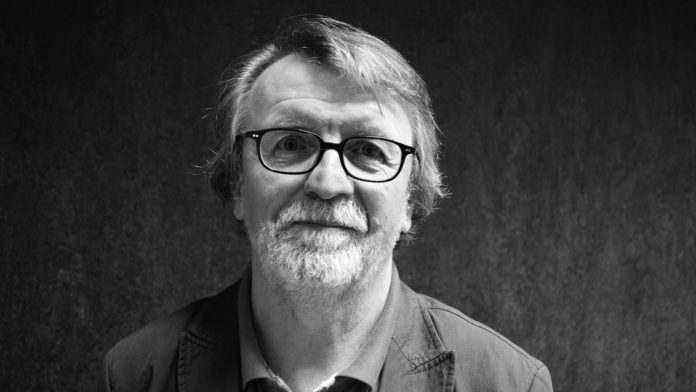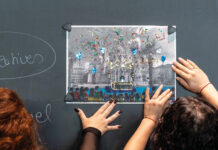
A case for the rediscovery of creativity
-Peter Strasser
What remains of the Universitas, the notion of an inclusive community of teachers and students, at a time when universities are increasingly being organised according to the efficiency principles pursued by large corporations on the market? Which creative skills is our society losing as a result? What “higher” benefits can the sciences provide when the hegemony of the natural sciences, the search for the “true, good and beautiful” – and therefore also work in the arts and humanities – is allowed to be the subject of criticism, reflecting a general distrust among the neoliberal establishment, that it serves no useful purpose?
The history of the term “nerd” is characteristic of our times. The fact that so-called “nerds” are deficient characters, have difficulty in interacting, are asocial and “morons” goes hand in hand with the assertion that nerds are only able to develop their creativity when they are concentrating compulsively on the Internet and living in isolation as a result. The positive myth of the nerd is a comment on the oversocialisation of our current knowledge industry.
While we used to say proverbially that genius and madness are close companions, today, we attach importance to the fact that Bill Gates, who has one of the most brilliant minds and the most outstanding business acumen of our times, used to be a nerd in his youth. Without placing great value on semi-legends of this nature, our organised knowledge industry does have something to learn from this. The nerd offers a counter-image to what is now popularly presented to young academics as “research excellence”. This “research excellence” is characterised by a series of features of which it can be said without much exaggeration that they tend to suffocate creativity rather than promote it.
It began with war being declared against the old-school hierarchical universities. It was claimed that the dust of a thousand years had settled on the professors’ robes. On the one hand, this was not in keeping with the times, while on the other, the liberal-capitalist model demanded its tribute. So it was that in the long term, the universities were not reformed in line with the new attitudes in the spirit of the anti-authoritarian model of the ’60s generation. Instead, to a far greater extent, the university of the 21st century is proud of being organised according to the principles of efficiency pursued by large corporations on the market, naturally with the questionable implication of being neither listed on the stock exchange nor having the purpose of maximising profit. What needs to be maximised is creativity. Here, those working in the hard sciences, who create financially lucrative products that are of practical use, are of course most highly regarded – and incidentally also stipulate the guidelines for interaction for research excellence.
And since there is a desire for liberation from state constraints (in truth, statehood in the knowledge industry meant a considerable degree of protection against instrumentalisation and exploitation), the catchword is: autonomy. In the university context, the word is merely window dressing, concealing as it does a rigid hierarchisation of the management structures through all academic sectors. The rector’s office, senate and university council stipulate focal areas that are binding right through to individual deaneries and institutions. This is compounded by a bureaucracy at the executive and coordination levels that has grown more rapidly over recent decades than any other area of university life.
To this is added the element of what is known as “third-party funding”, which is gaining in importance. If young researchers want to make progress in their career, they must apply for projects for the funds provided under the supervision of a professorial authority. The decision as to whether or not these projects are approved lies in the hands of assessors, who precisely in the more exotic subjects, which are particularly dependent on such funding, frequently issue evaluations that are questionable for being highly subjective and which are in practice incontestable.
The likelihood of being placed in what is anyway a precarious working position as a project participant increases when applicants have two competencies (soft skills) which both impede creativity: first, the ability to “network”, to generate status in so-called “excellence networks”; and second, the ability to roll out standardised academic speak off the cuff, where the key skill is to leave the correct terminological “scent marks” – rather than original ideas – in the right places.
In this way, a research industry is created, the “team” nature of which (a euphemism for authoritarian-led project personnel) may be similar to a think-tank, but which – particularly in the soft sciences – certainly offers no protective realm for creativity. In the interim, we have towering stacks of research projects that have no epistemological value, but which are instead sprinkled with the terms and phrases favoured by the system, thus creating the impression that they are “optimising” a knowledge-generating optimisation programme. These projects are the product of the labour of young researchers who have no secured employment and who therefore have no choice but to comply with what is required of them by the mainstream.
Laypersons can hardly imagine the pressure to standardise forms of expression, which becomes all the stronger the more those who use the language feel obliged to be politically correct. Here is an extract from an assessment made by a professional body for gender diversity dated 19th August 2014, which was sent electronically via the university lecturers’ association at the University of Graz:
“The most recent personal and generalising attacks on anti-discriminatory approaches – be they contemporary, pro-diversity sex education, gender/diversity-conformant language or emancipatory, feministic or other anti-discriminatory positions – are not solely the backward clinging to longstanding and convenient, since privileged, securities such as social structures and views of the world and reality that it is claimed are ordained by nature. There is also the fantasy that science is the disinterested discovery of a given and unchanging truth. “
One might well claim that one of the biggest factors influencing the destruction of creativity was the one that aimed to drive out from all talented academics the notion of “the disinterested discovery of a given and unchanging truth”. The origin of all creativity lies in a driving force that can only unfold when the creative individual is not forced to act in the service of one interest or another. Indeed, it is the virtue of the “purposelessness” which first engenders that higher purpose that goes hand in hand with the discovery of the new in the service of the search for the “true, good and beautiful”.
The people who speak in the manner of the quote I have given above – and this kind of language is one of the soft skills that every academic should master if they want to get ahead in their research career – has already entered into the service of “instrumental rationality”. In so doing, the researcher is directed from the outside in the manner criticised by many academics during the 1960s, particularly Herbert Marcuse, Günter Anders, Theodor W. Adorno and Jürgen Habermas. More names could be added to the list. Here, it is noticeable that the main area of criticism – the “instrumentalisation of the truth” – applied to the infiltration of the model of knowledge of the natural sciences into the humanities. Their hope was in turn directed towards their own, “emancipatory” knowledge type, which also claimed validity for all artistically ambitious undertakings.
In reality, the development took a very different turn. While the natural sciences shone with truly titanic innovations, from genetics through to electronics and the colonisation of outer space, in the humanities, a globalised pattern emerged. The global networking of language and therefore also thought structures increased the pressure to conform to the standard on creative individuals, under the marketable banner of “sustainability”. The only reason why this pressure isn’t immediately apparent is that an internal differentiation is made, as desired by the knowledge bureaucracy, between the “points of view” and consequently also the largely standardised schools of thought. The male-dominated republic of academics has turned into an anthill of an operation consisting of industrious mental worker teams, who are subject to constant evaluations and regional optimisation maxims.
Keeping the several outstanding minds, which of course also exist, out of the system is a deflection manoeuver away from the standard case scenario. In the field of what used to be called the humanities, the fact must be rediscovered that without those freedoms and institutionally supported muses – yes, muses! – creativity is impossible. Instead, a vast, rhizome-like complex of symbolic, deconstructive, meta-layered thought patterns is currently unfolding, all under the protective covering of a monotonous, academic English language style that is drained of all spirit.
Aside from the freedom of movement permitted within its own luxury niches, which society would not want to do without (after all, we hope to convince ourselves that we are still devoted to achieving a deeper spirituality that creates meaning) – this complex is focussed above all on modelling and commenting on the “discourses” that are currently in circulation. Here, aided by terminology markers such as “innovation” and “diversity”, a fake simulation of diversity is advocated which pulls anything that deviates from it into the general debate on diversity forced into line.
It is a matter of doubt as to whether within the framework of such a dynamic anything substantially new can be created that might be able to bring about some kind of mental vitality. However, since we are largely blind when it comes to the future, the possibility cannot be excluded that under the unbearable yoke of flattening and bureaucratic straightjacketing, the creative individual will ultimately come to create a new academic stage – by blowing the old one to pieces with the tools of the creative spirit. The dream of the old Utopia of the Universitas litterarum has not died…
Postscript: As someone born in 1950, I was fortunate to experience academic freedoms which today have largely disappeared. I admit that the various negative aspects of the old system have also vanished. However, in order for my creativity, such as it was, to develop, I needed to be granted a certain degree of security by the “university” system over the course of time. The most important safeguard was my “pragmatisation”. As a result, I became a non-firable public official, who no longer needed to bow before any request for instrumentalisation. Today, I would not be able to survive the system, and I have had the misfortune to have witnessed the failure of several of my most creative students to find their place within it.
The author
Associate Univ.-Prof. Dr. phil. Peter Strasser, born 1950, teaches philosophy and the philosophy of law at the Karl-Franzens University in Graz. From 1990 to 1995, he was a member of the advisory board of the “steirischer herbst” (“Styrian autumn”) avant-garde festival. Since 1999, he has also been a lecturer and visiting professor at the Institute for Philosophy at the University of Klagenfurt. From 2002 to 2008, Strasser was co-editor of the “Bibliothek der Unruhe und des Bewahrens” (“Library of unrest and preservation” published by Styria Verlag), and from 2010 was an academic advisor for the series of essays “Unruhebewahren” (“Preserve the unrest”) published by Residenz Verlag. In 2014, Peter Strasser received the Austrian State Prize for Cultural Journalism. In his numerous publications, Strasser discusses questions of ethics, legal theory, criminology, metaphysics and the philosophy of religion.











